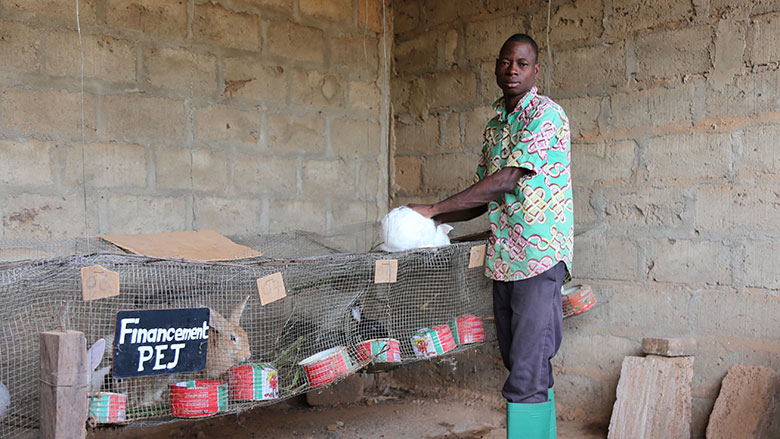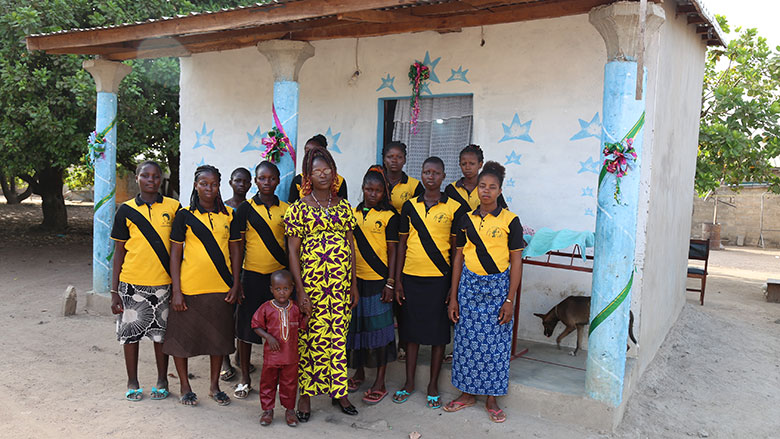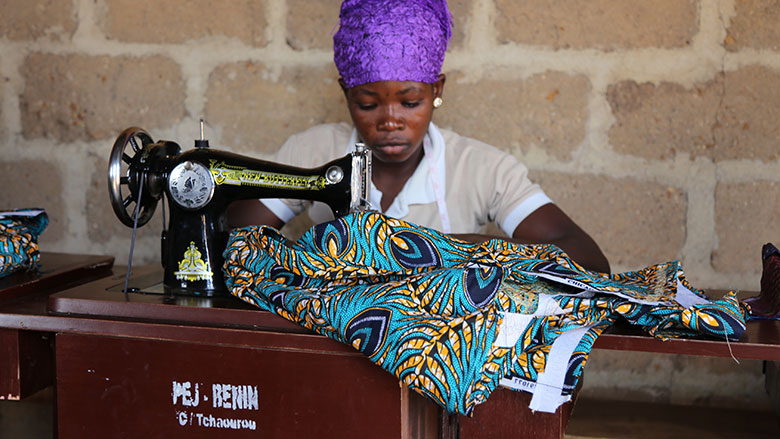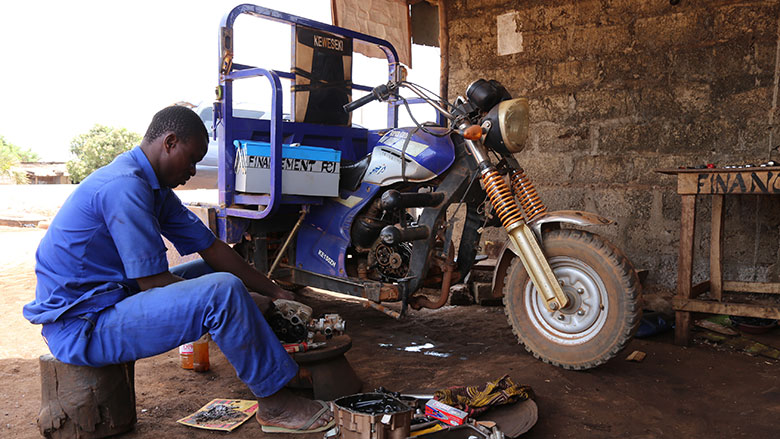TCHATCHOU, BENIN, June 17, 2019―Just a short distance away from Parakou, the largest city in northern Benin, Tchatchou is a very popular stop for motorists who travel the Cotonou-Niamey route daily and stop on the roadside to purchase yam and cheese. However, what many of them do not know is that, until very recently, this commune of over 25,000 residents did not have a hair salon worthy of the name, obliging many women to travel to Parakou to get their hair done. After six years of making do with limited resources in a makeshift location that she rented for CFAF 3,000 (roughly $5) a month, Christine Abéya Ali expanded her business by investing in a larger space, furniture, and hair salon equipment.
A little boost to get off the ground
This caused quite a stir in Tchatchou, as Christine described passionately. “I was very good at doing women’s hair but because I didn’t have any equipment, I didn’t have any customers. So my husband helped me set up a salon and I used a grant from the Youth Employment Project (PEJ) to purchase salon equipment. Now I am the only female hair stylist in Tchatchou with an electric hair dryer, so many women who used to go to Parakou are coming to my salon.”
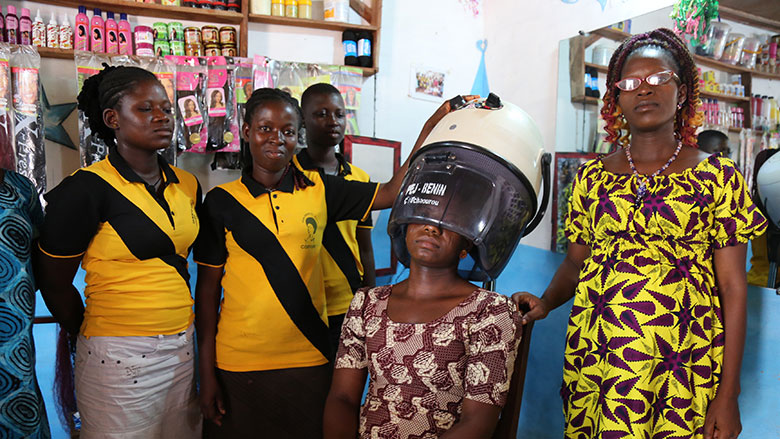
She used a grant of CFAF 200,000 (approximately $341) provided by the International Development Association (IDA)-financed project to purchase a hair dryer, a shampoo basin, mirrors, a fan, a storage cupboard, and a couch for the salon. The project also provided her with training to help her manage her salon more efficiently. The result: in the space of one year in her new salon, she hired 10 female apprentices and is generating record income. "I have already had a house built for my mother in her village in Kpatakou, and I am providing well for my three children,” she says. She also diversified her business by learning how to make beaded items (necklaces, bags, and other craft accessories), which she offers to her customers.
Like Christine, 17,000 Beninese nationals between the ages of 18 and 35 received training and a grant to start up or expand craft, tourism, or agricultural processing businesses in the country’s 77 communes. Many of them have been successful.
This is the case of Moukou Orou Koto, who is in his thirties and started a rabbit-rearing business in Boko, in the N’Dali commune in the department of Borgou. During the holiday season, he sold 40 rabbits and earned over CFAF 120,000 (roughly $204). “I am raising livestock right in the middle of the city. My mother saw how industrious I was and topped up the money I earned from the rabbit sales so that I could acquire 2.5 hectares of land in the village of Maréboro,” the young livestock farmer explains.
